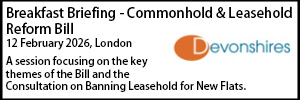- Details
Firm foundations
Are you intrigued about working in local government but hesitant to take the plunge? Real estate lawyer Matthew Dineen explains how he overcame his initial doubts and never looked back.
To be a successful private practice lawyer, you need drive, resourcefulness and intellectual agility for work that is innovative, challenging and rewarding…the very same skills needed to be a successful local government lawyer for work that is just as enriching.
Can I really make “the switch”? This was a question I found myself asking more and more. I wanted a change from private practice for a number of reasons, but was reluctant to meaningfully consider leaving the City for a career in local government. This reticence was not based on fact, but an intuitive hesitancy formed from the collective, inherently negative, perception of what people had told me such a career would be like. Their own views were often based, I have come to realise, on outdated stereotypes of the working environment of local government; of the quality of the work and, by extension, the quality of the lawyer who would choose to work there. Often these sweeping generalisations were the consequence of their isolated experiences as residents, rather than from any tangible, professional context. Hopefully, writing about my personal experience of “the switch” and what it is actually like can assist those who, as I was, are hesitant to make it.
I trained at a large West End practice, then moved to a renowned City firm specialising in my area of expertise, Real Estate. I was fortunate to work in highly stimulating environments with immensely talented colleagues that had a refreshingly welcome approach to pro bono and charitable initiatives. The quality of the work was very high, as was my interest in it. However, over time I became concerned about career progression and the recurring homogeneity in the type of work.
I found that a somewhat laborious routine had set in, perpetuated by a culture of long hours and sacrificial weekends. When I looked up the ladder to observe those junior partners who had been promoted to partnership in recent years, I saw absolutely no change to this routine. If anything, it had intensified, as they seemed to feel a pressure to justify their inclusion in the club with an intensely specific focus on billing, rather than individual development and because they were “only” salaried partners, felt obliged to work even longer hours and sacrifice even more weekends to covet that most esteemed prize of City practice, equity partnership.
I sought a change that would give me options in terms of my career progression, variety of work and greater satisfaction; a change that would test my abilities in different ways. I had always had an interest in work with a public context and the idea that I might be advising on matters with a palpable public benefit was very appealing to me. Therefore, I took the decision to join the innovative practice at HB Public Law, a shared service borne out of the in-house legal department at Harrow Council and which now represents six local authorities. HB Public Law also acts for several other public bodies through its alternative business structure (ABS) – it was only the second local authority practice in England and Wales to obtain such a licence.
 In truth, I did not know what I would find, but any apprehension about leaving the City behind quickly dissipated because what I found was pleasantly surprising. I had not joined a sleepy, inefficient place which lacked the energy to meaningfully progress anything as I initially feared I would, quite the contrary. In many ways, I have found local government practice to be very similar to City practice. Public sector work demands the very highest standards of advice, as what we as lawyers advise directly affects the residents we serve. From my perspective as a Real Estate practitioner, we are custodians of the public realm.
In truth, I did not know what I would find, but any apprehension about leaving the City behind quickly dissipated because what I found was pleasantly surprising. I had not joined a sleepy, inefficient place which lacked the energy to meaningfully progress anything as I initially feared I would, quite the contrary. In many ways, I have found local government practice to be very similar to City practice. Public sector work demands the very highest standards of advice, as what we as lawyers advise directly affects the residents we serve. From my perspective as a Real Estate practitioner, we are custodians of the public realm.
I have found local authority practice to be inherently innovative. The well-publicised financial pressures on local government mean that our instructing officers have had to think creatively to devise schemes which ease those unprecedented financial circumstances, whilst still safeguarding our residents and delivering the objectives of the elected administration. These projects require local government lawyers to engage precisely the same skill sets as City lawyers: commercial risk assessment; lateral and critical thinking; proactivity of thought; and a holistic approach that identifies impact on other areas of the council.
The variety of work is significant and it is true to say that no two days are the same. What work do we do? Everything.
I lead the property advice on large regeneration schemes, which collectively are valued at over £1bn. Each of our clients are large land owners, so my team and I act on all aspects of asset management. We act on multi-million pound investment portfolio acquisitions and complex corporate structures that permit authorities to act commercially within the powers afforded to them by legislation. I have even had to advise in emergency scenarios, such as a sink hole opening up overnight under one of our primary schools, with the subsequent safety and logistical challenges of ensuring the children’s education was not interrupted. There is a natural political aspect to the work; I regularly work with elected members and in doing so have an awareness of the diversity of issues which are of the greatest importance to our residents across all of our client boroughs. It is these uniquely diverse characteristics of the work which you encounter more often in local government than private practice.
There are positive differences with the working culture. Local government practice is far less hierarchical than private practice, with a greater meritocratic appeal. Career progression is objectively measured, with a specific career grading process encouraging staff from newly qualified level to progress onwards towards taking up management positions based on published, verifiable criteria. There is a focus on the development of the individual, not their increasing billing target.
The selection and interview processes are detailed and rigorous. I would suggest to any candidate from private practice to take the opportunity to highlight just how transferable and relevant your skills are. Ascertain what the crucial issues are for that particular authority by reviewing the published Cabinet/Committee papers, what solutions are being proposed and understand what the legal implications are.
In terms of making the transition, leave any hesitancy behind. Do not be concerned that it is a one-way street. Colleagues at the practice have, with ease, moved back into private practice, emphasising my opening point that the skill sets required are the same and the work just as cutting edge.
View everything as an opportunity. Always say “yes”. Local government practice is a steep learning curve, diverse, intellectually rigorous and, above all, an incredibly rewarding career.
Matthew Dineen is Senior Lawyer & Team Leader – Property at HB Public Law, which has 170 lawyers providing legal expertise to local authorities, schools, academies, housing organisations and others in the public and not-for-profit sectors.
Head of Legal
Legal Director - Government and Public Sector
Solicitor - Civil and Criminal Litigation
Child Care Lawyer
Commercial Lawyer
Solicitor - Civil and Criminal Litigation
Litgation Solicitor
Solicitor - Contracts and Procurement
Locum roles
 Cornerstone Barristers roundtable on the Draft NPPF: Plan-Making Provisions
Cornerstone Barristers roundtable on the Draft NPPF: Plan-Making Provisions
09-02-2026 2:00 pm
London
 Breakfast Briefing – Commonhold & Leasehold Reform Bill – a session focusing on the key themes of the Bill and the Consultation on Banning Leasehold for New Flats - Devonshires
Breakfast Briefing – Commonhold & Leasehold Reform Bill – a session focusing on the key themes of the Bill and the Consultation on Banning Leasehold for New Flats - Devonshires
12-02-2026 8:30 am
London
 Planning, Property and Power Webinar Series: Strategic energy planning - Landmark Chambers
Planning, Property and Power Webinar Series: Strategic energy planning - Landmark Chambers
12-02-2026 10:00 am
Online (live)
 Public Sector Insights – NHS Continuing Healthcare (CHC) in Wales - Blake Morgan
Public Sector Insights – NHS Continuing Healthcare (CHC) in Wales - Blake Morgan
12-02-2026 10:00 am
Online (live)
 InLaws workshop – Effective Communicating and Influencing - Devonshires
InLaws workshop – Effective Communicating and Influencing - Devonshires
12-02-2026 2:00 pm
Online (live)
 HMPL Building Blocks: Legal Tools to Combat Anti-Social Behaviour - Devonshires
HMPL Building Blocks: Legal Tools to Combat Anti-Social Behaviour - Devonshires
17-02-2026
Online (live)
 Data Controller, Processor or Joint Controller: What am I? - Act Now
Data Controller, Processor or Joint Controller: What am I? - Act Now
18-02-2026 10:00 am
Online (live)
 Freedom of thought, belief and religion: Article 9 ECHR - Francis Taylor Building
Freedom of thought, belief and religion: Article 9 ECHR - Francis Taylor Building
19-02-2026
Online (live)
 AI and Information Governance: Bridging Innovation and Compliance - Act Now
AI and Information Governance: Bridging Innovation and Compliance - Act Now
19-02-2026 10:00 am
Online (live)
 Safeguarding Issues and Fairness in Investigations and Hearings - 3PB
Safeguarding Issues and Fairness in Investigations and Hearings - 3PB
24-02-2026 11:00 am
Online (live)
 Children and Young People (DoL, Competency and Capacity) - Peter Edwards Law Training
Children and Young People (DoL, Competency and Capacity) - Peter Edwards Law Training
25-02-2026
Online (live)























































































































 The General Data Protection Regulation - Act Now
The General Data Protection Regulation - Act Now  Interveners in financial remedy proceedings - 42BR
Interveners in financial remedy proceedings - 42BR  The Procurement Act - One Year On - DWF
The Procurement Act - One Year On - DWF  The ERA – An Overview - Sharpe Pritchard
The ERA – An Overview - Sharpe Pritchard  Short Term Lets - Ivy Legal
Short Term Lets - Ivy Legal 